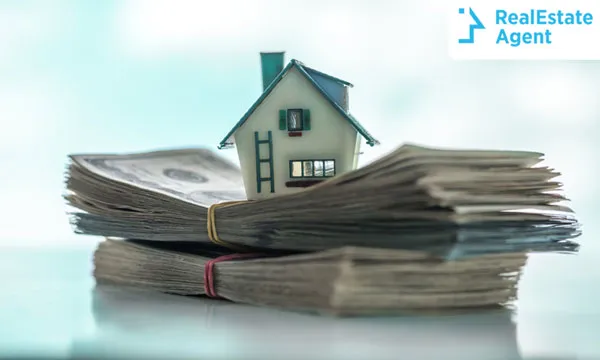 Down payments, or “front money”, seem like a pretty straightforward thing, right? You want to buy something pricey without damaging your cash flow, so you ask the seller to pay in monthly installments. The Seller agrees, but to protect him/herself he/she asks for a reasonable amount of the total price beforehand.
Down payments, or “front money”, seem like a pretty straightforward thing, right? You want to buy something pricey without damaging your cash flow, so you ask the seller to pay in monthly installments. The Seller agrees, but to protect him/herself he/she asks for a reasonable amount of the total price beforehand.
Yes, that’s the general idea. But this is Real estate; haven’t you noticed that there are always hidden secrets to everything? Yes, there’s much more going on with down payments and on this article we will talk about that so if you, the home buyer, cannot dispose of money upfront, you can still negotiate other forms to go into closing and get that real estate you want so much!
Land as Down Payment
Especially in real estate, there are cases where you can, instead of using “paper money”, dispose of an asset as a down payment.
Many people acquire land in order to build on it later, and the land serves as part of the front money or even its entirety. If the land has been held for some time, the lender will run an appraisal on the completed house with the lot, and the difference between the appraised value and the cost of construction is viewed as the the front money.
Should you use Sale Price or Appraised Value?
Home purchasers who pay less for a home than its appraised value frequently question whether they can use the difference as their down payment. They cannot. The rule is that the real estate value used in determining the front money and the Loan-to-Value ratio is the sale price or appraised value, whichever is lower. The only exception to this is when the home seller provides a gift of equity to the home buyer.
Gift of Equity as Down Payment
A gift of equity arises when a house is sold for less than its market value, almost always to a family member. In this case, the lender recognizes that the house is being priced below market and will accept the appraisal as the value. Most lenders in such cases require two appraisals, and they take the lower of the two.
Cash Gifts as Down Payment
Sometimes, Lenders will accept cash gifts for some part of the down payment, usually not for all of it. While the rules vary for different programs, it is common to require that the borrower contributes 3% of the front money.
How it usually happens: Lenders require a donor to sign a gift statement affirming that the funds provided are a gift rather than a loan. They do that because they want assurance that the transfer of funds imposes no repayment obligation that could put the mortgage loan at risk. Sometimes, however, borrowers induce friends or family members who do not want to make gifts to lend in the guise of a gift. With friends like that, who needs an enemy, right?
For example: a house purchaser needs the equity in his current house to make the down payment on a new one, but must close on the new one before the old house is under contract. Because there is ample equity in the old house, the home buyer asks a friend or family member to lend the amount needed for the front money to be repaid when the old house is sold. This is a bad idea. Not only is it a fraud against the lender; it also involves risk to the donor. Some of the
contingencies that could result in not being repaid include a sharp drop in the value of the old house before it is sold, or the sudden death of the home purchaser.
The home buyer in this situation should be advised to take out a home equity loan on the old house, which can be repaid when it is sold. A home equity lender has a lien on the house and has diversified its risk over many loans. The lender pretending to be a donor has neither.
Security Deposit as Down Payment
Some investment banks offer home loan plans where they accept security deposits in place of a down payment. These plans delay the accumulation of equity in the house indefinitely. The customer begins with no equity, and if the payment only covers the interest for the first 10 years, which is a common feature, the only equity buildup is from appreciation in the value of the real estate. The theory behind this is that the consumer's overall wealth will grow more rapidly if the maximum amount is invested in securities.
Home Seller Contributions
Home sellers often “gifts” home buyers, raising the price by enough to cover the gift. The purpose is to improve the home buyer's ability to purchase the house by reducing the required cash. The practice seems strange but is legitimate, provided it is done openly and conforming to the guidelines of lenders and mortgage insurers. For it to work, the appraiser must say that the real estate is worth the higher price.
Contributions Under Federal Housing Administration - FHA loan
On a Federal Housing Administration (FHA) loan, individual sellers can contribute up to 6% of the price to the home buyer's settlement costs, but nothing to the front money. However, Federal Housing Administration (FHA) loans allows approved nonprofit corporations to offer down payment assistance using funds provided by home sellers.
No-Down-Payment Loans
Yes, there are times when you can have a loan without the need of a down payment.
The availability of no-down-payment loans (NDP's) is a strength of the U.S. mortgage system and also a weakness. Some families become successful homeowners with the help of NDP's. Others, who shouldn't be homeowners, are enticed to try because of its seducing power and fail. No-down-payment loans have high default rates. This has been a finding of every study of real estate mortgage defaults that we’ve ever seen. One reason is that homeowners who borrow the full value of their real estate have less to protect should economic adversity strike. If they lose their job, or if real estate values decline temporarily, they lose less from a default than borrowers with equity. A second reason is that borrowers unable to accumulate front money have not demonstrated budgetary discipline and the ability to plan ahead.
People able to save money every month before they buy a home are much more likely to meet their monthly mortgage obligations afterward. Furthermore, in recent years, lenders have become more confident in their ability to assess the willingness and capacity of borrowers to repay their real estate mortgages. Using credit scoring and other tools, they judge that it is safe to give less weight to an applicant's ability to accumulate a down payment.
Lenders also protect themselves by charging higher rates on NDP's. The rate includes a 'risk premium' to cover the losses lenders expect from higher delinquencies and defaults.
As you've seen, no need to get literal about front money. Especially in Real Estate; there are always options to work around. That's just another reason why its so important for a home buyer to have the advice of a real estate agent when buying a house: it's all a matter of reassuring the home seller that he/she is doing a safe, professional transaction. That there is accountability, that, should something happen, he/she will have a safety net (or a mattress, or a trampoline) to fall back on and bounce back. It doesn't matter which exactly, what matters is that he/she won't fall face-down to the floor.
















Have a question or comment?
We're here to help.